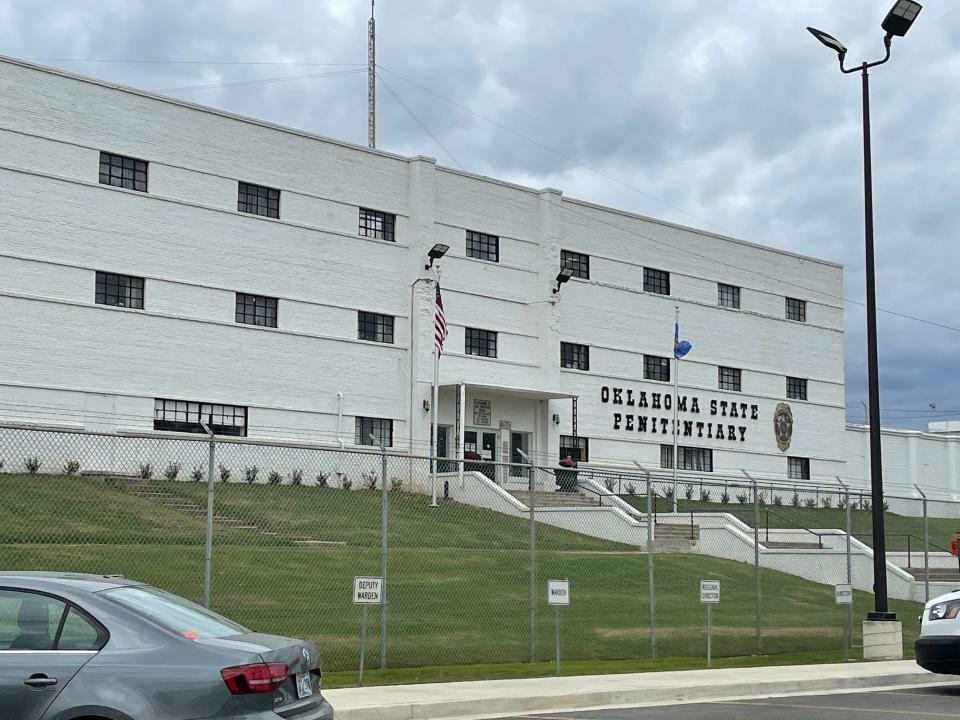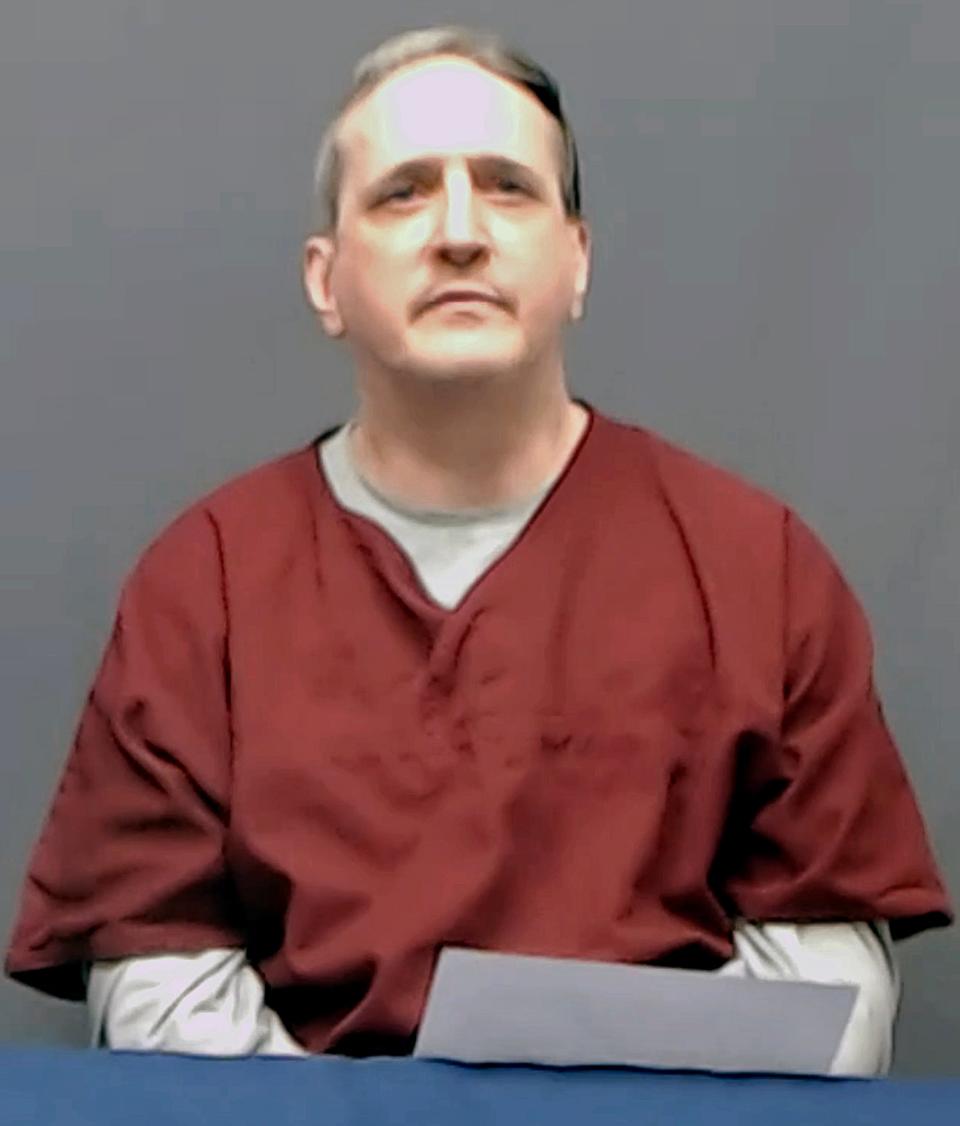Death row inmate Richard Glossip gets execution stay from US Supreme Court

Death row inmate Richard Glossip on Friday was granted another stay of execution.
The U.S. Supreme Court stayed his May 18 lethal injection, days after Oklahoma's new attorney general, Gentner Drummond, told justices that Glossip was convicted on "false testimony that was not corrected by the prosecution."
The AG had asked justices for a stay, arguing "the public interest is clearly served by not executing a man after the State has concluded that the conviction cannot be sustained."

Glossip was set to be executed at the Oklahoma State Penitentiary in McAlester. His attorney, Don Knight, said, “We are very grateful to the U.S. Supreme Court for doing the right thing in stopping Richard Glossip’s unlawful execution. There is nothing more harrowing than the thought of executing a man who the State now admits has never received a fair trial."
Drummond said Friday, "I will continue working to ensure justice prevails in this important case.”
The Oklahoma Court of Criminal Appeals on April 20 refused to grant Glossip a stay and threw out his latest challenge to his conviction.
Glossip, 60, has always maintained in the 1997 murder-for-hire case that he is innocent.
The AG had asked the Court of Criminal Appeals to set aside the conviction and send the case back to the Oklahoma County Courthouse.
Drummond complained the key witness, confessed killer Justin Sneed, gave "false testimony" to the jury at a 2004 retrial regarding his psychiatric treatment.
More: Oklahoma AG files Supreme Court petition supporting stay of execution for Richard Glossip
Glossip's innocence claim has found support
Glossip has become the state's most high-profile death row inmate because of the wide support for his innocence claim. Among his supporters are conservative Republican legislators.
Sister Helen Prejean, the Roman Catholic nun who wrote "Dead Man Walking," spoke up for Glossip at a news conference Thursday at the state Capitol.
A rally featuring Phil McGraw, host of the highly popular syndicated daytime show, "Dr. Phil," is scheduled for Tuesday at the state Capitol. McGraw, who was born in Oklahoma, has said he is absolutely convinced of Glossip's innocence.
Glossip also is high profile because his 2015 execution was called off when a doctor realized the wrong heart-stopping drug had been delivered.
Glossip claimed innocence in the murder of Barry Van Treese
Glossip claims he was framed for the murder of Barry Van Treese, an Oklahoma City motel owner. The Court of Criminal Appeals rejected two previous challenges to his conviction in November.
His boss was found beaten to death in Room 102 of his motel, the Best Budget Inn, on Jan. 7, 1997. Van Treese was 54 and lived in Lawton. Glossip was the motel manager.
Sneed, a motel maintenance man, confessed to killing Van Treese with a baseball bat. He said Glossip pressured him into doing it and offered him $10,000 as payment. He testified against Glossip at two trials.
Glossip's attorneys claim Sneed actually killed the motel owner during a botched robbery for drug money. They claim he incriminated Glossip to avoid getting the death penalty himself.
They claim Sneed, a meth addict, made admissions in jail and later in prison about framing Glossip and also has talked of recanting his testimony.
What's next for Glossip?
The U.S. Supreme Court now must decide whether to review the Court of Criminal Appeals' recent rulings against Glossip.
The Supreme Court said Friday the stay shall terminate automatically if it doesn't intervene. The Court of Criminal Appeals then would have to pick a new execution date, probably in 2024.
The stay also will end if justices do intervene and then rule against him.
What is at issue?
The new issue in the case centers around testimony from Sneed at the retrial that he was given lithium "for some reason" in jail in 1997 after at first getting Sudafed for a cold. "I don't know why," he told jurors. "I never seen no psychiatrist or anything."
Glossip's attorneys say they now have a sheriff's form that proves Sneed had been diagnosed in jail with bipolar disorder. They also have a statement from the jail psychiatrist at the time that "lithium was a first line drug used to treat patients diagnosed with bipolar disorder" and would not have been prescribed for a cold.
Both the AG and Glossip's attorneys now contend prosecutors at the retrial knew the testimony was false.
"The State permitted Sneed to effectively hide his psychiatric condition and the reason for his prior lithium prescription through materially false testimony to the jury," the attorney general told justices in a filing Monday.
"Quite simply, regardless of his intentions, the testimony of central witness Justin Sneed on a point crucial to assessing his credibility was false, and the State knew that and said nothing," Glossip's attorneys told justices in a new petition Thursday.
The Oklahoma Court of Criminal Appeals did not see it that way last month, saying in its ruling against Glossip that Sneed's testimony "was not clearly false." Judges also said prosecutors had not knowingly concealed Sneed's lithium use.
Drummond's stance on Glossip has put him at odds with district attorneys across the state. A number showed up at Glossip's clemency hearing April 26 to show support for the Van Treese family.
Former Oklahoma County District Attorney David Prater on Friday called what Drummond is saying about prosecutors at the retrial "absolutely false."
The retired DA said those prosecutors did not withhold evidence "about some non-existent diagnosis."
"He has no medical documentation that there was a diagnosis of bipolar," Prater also said. "He has no medical documentation that Justin Sneed was prescribed lithium for any mental health diagnosis. The fact that Justin Sneed was on lithium was well known at the time of the second trial. It was put before the jury. The defense team chose strategically not to push Justin Sneed on it."
This article originally appeared on Oklahoman: Death row inmate Richard Glossip gets execution stay

 money
money 